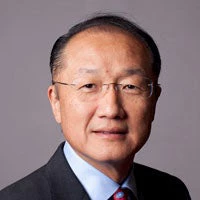For three days this month, the West African nation of Senegal was in the spotlight of global efforts to combat climate change and improve education in a rapidly changing world.
French President Emmanuel Macron and Senegal’s President Macky Sall co-hosted a conference in Dakar to replenish the Global Partnership for Education (GPE) – a funding platform to help low-income countries increase the number of children who are both in school and learning.
African leaders and partners stepped up to announce their commitment to provide an education that prepares children to compete in the economy of the future and advances socio-economic progress.
Heads of state from across the continent described their challenges—including terrorism, insecurity, the influx of refugee children who need an education, the strain on national budgets, and the cultural bias against educating girls.
As the World Bank Group’s 2018 World Development Report documented, millions of children around the world are in school but not learning, and it’s becoming increasingly urgent to fix the current crisis in education.
As I said at the GPE Conference, advances in digital technology, automation, and robotics will change the nature of work and disrupt traditional paths to prosperity. The best investments for developing countries hoping to grow will be in people – in grey matter infrastructure and the building blocks of human development: nutrition, health care, education, and skill-building.
This is an area where Senegal has lessons to share. More than 25 years ago, the government mounted a community-based campaign to reduce chronic malnutrition. Childhood stunting rates fell from 34.4 percent in 1992 to 17 percent today—the lowest in continental Sub-Saharan Africa.
Today, Senegal is taking steps to improve education quality, with 7 percent of Senegal’s GDP going to education. President Sall and his government are looking for new drivers of economic growth that entail greater investments in people.
President Sall is also moving to address another critical problem in Senegal—coastal erosion that threatens homes and livelihoods in the historic city of Saint-Louis.
In December, I co-hosted the One Planet Summit with President Macron in Paris to unleash the power of the private sector and get market forces moving in the right direction to combat climate change. I accompanied Presidents Macron and Sall to see the erosion in Saint-Louis first-hand.
We need urgent action to save this historic city. The World Bank Group and France are working together to help Saint-Louis and other places in West Africa where the coast is eroding by as much as 20 meters a year, and where an estimated 122 million people live in areas of an elevation below 5 meters.
It’s going to take a global effort to confront the challenges we all face—from climate change to the fallout if children grow up without the skills and brainpower to compete in the workplaces of the future. The need to invest in people and the planet has never been more imperative; we must take up the challenge.


Join the Conversation